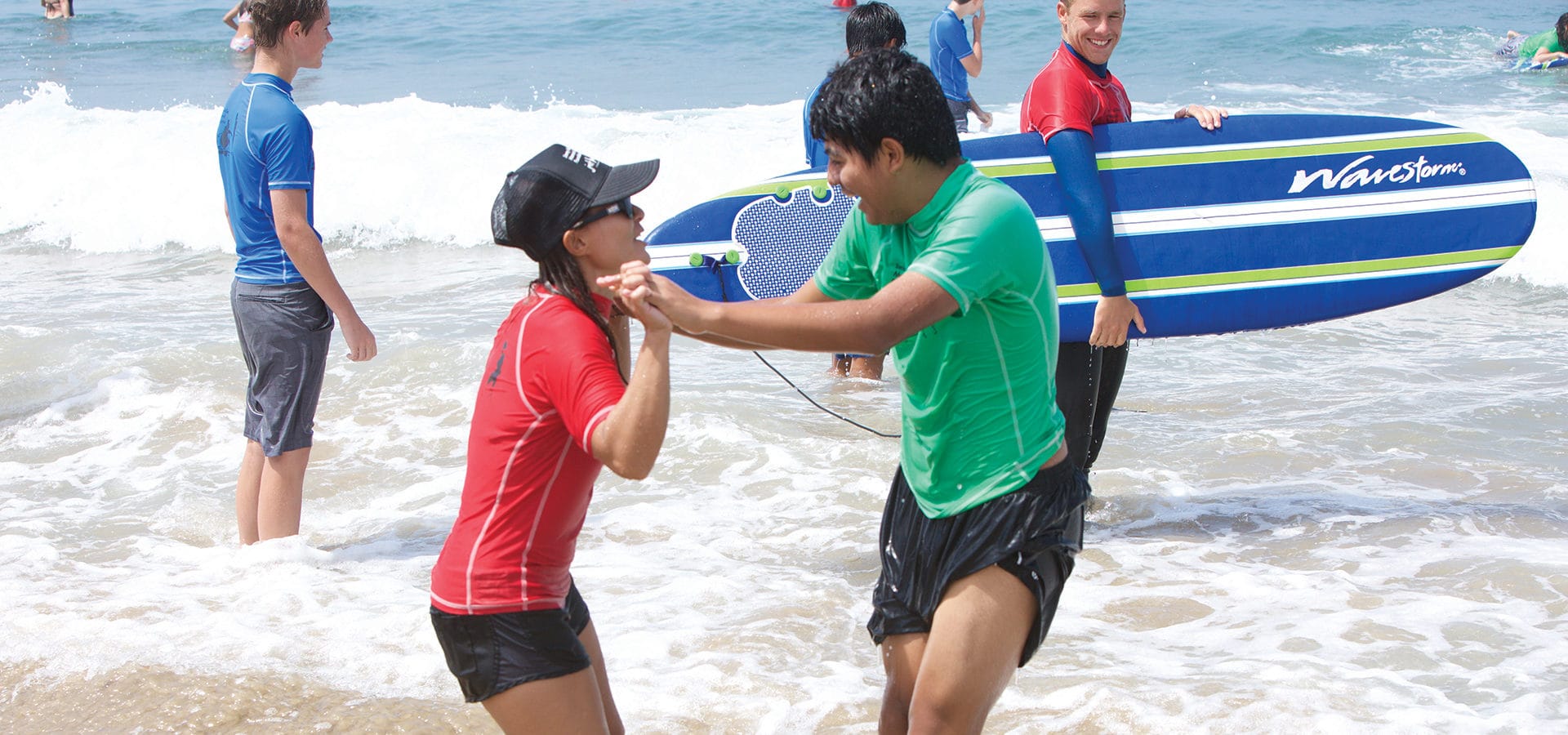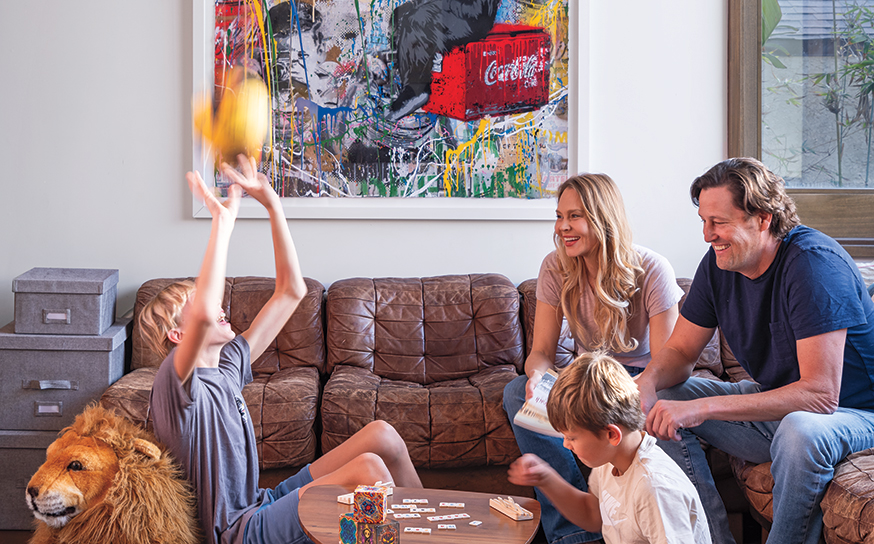Kris Primacio walks barefoot along the Manhattan Beach Strand, her eyes focused on the water below. Each perfectly formed wave captures her attention. “I wish I was out there,” she says.
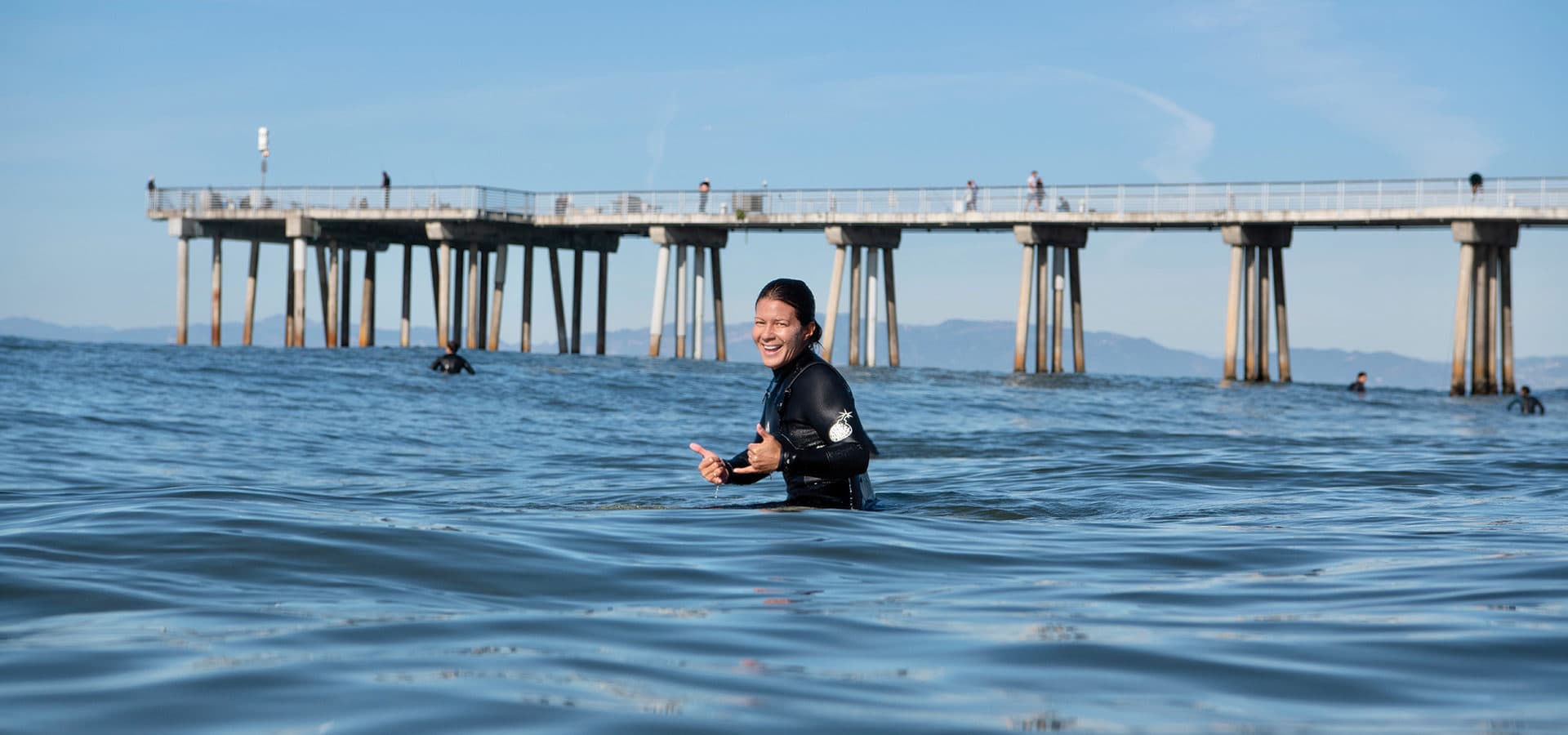
An avid surfer, Kris has structured her life around the tides and swells running across the sand and plunging into the sea at every opportunity. Her passion for the ocean is palpable. It’s that passion that inspired Kris to begin volunteering for surf therapy programs, and it is eventually what led to her position as the executive director of the International Surf Therapy Organization.
Surfing has played an integral role in the trajectory of Kris’ life, though its influence is relatively new. Kris is Hawaiian but grew up in Seattle, Washington, where she spent most of her time on lakes and rivers. It wasn’t until she moved to Manhattan Beach in 2010 that her neighbors began nudging her to get on a board.
“In 2011 I was pushed into my first wave in San Onofre,” she says. “From that moment on, I was obsessed.”
For Kris, surfing was more than a pastime. She found solace in the water. “My father was diagnosed with cancer five months before I started surfing. Being on that surfboard allowed me to forget about his CT scans and his white blood cell count,” she explains. “I found myself finding refuge in the ocean. I still find myself finding refuge in the ocean.”
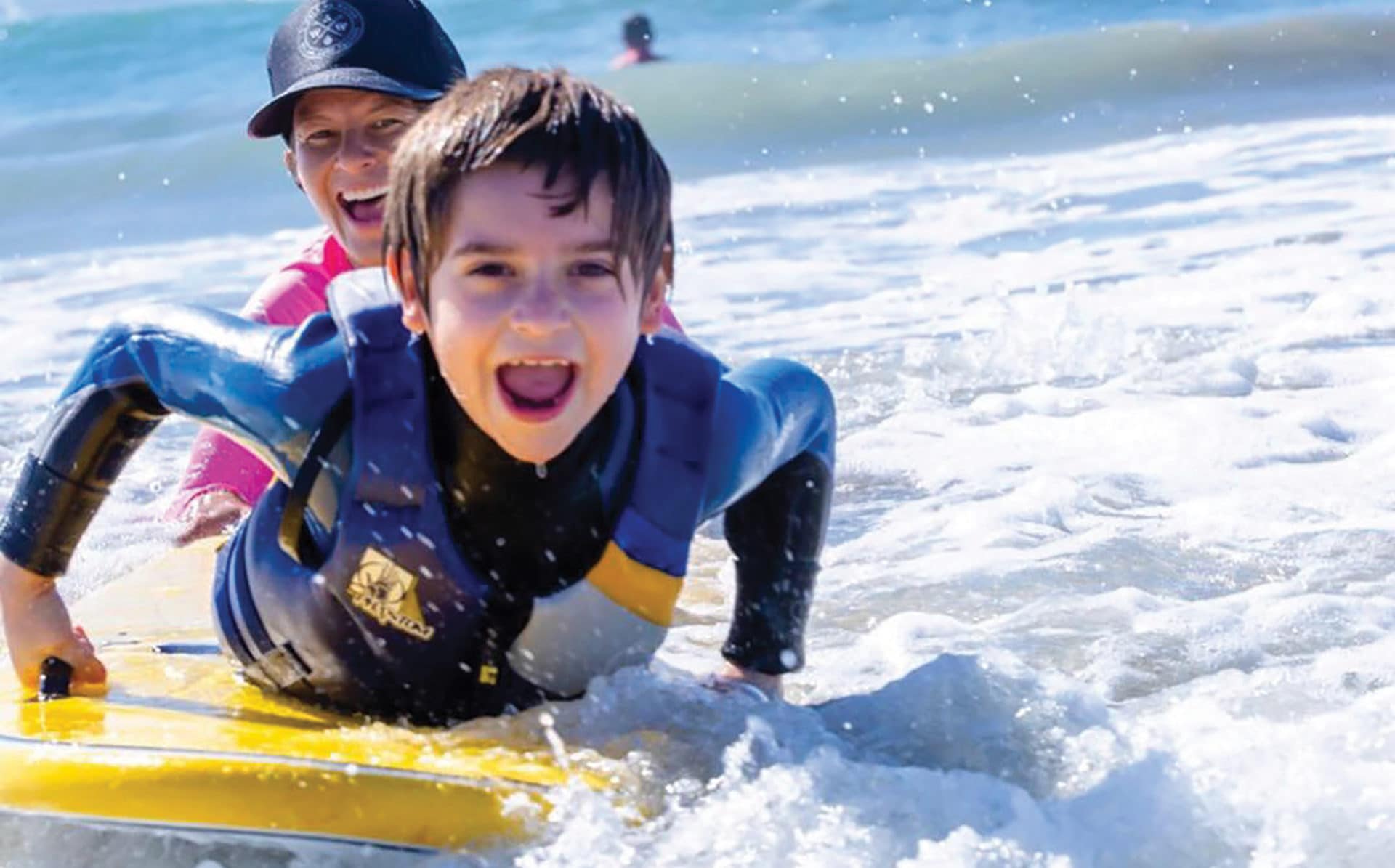
Being in the water served as a remedy, but it also gave Kris the opportunity to connect with herself. “You learn how to be present. You learn all these life lessons out in the ocean—to be more patient and to accept what’s given,” she says.
Kris began to structure her days around surfing. And while volunteering had always been a part of her life, she was now focused on donating her time to surf therapy programs. “I knew I wanted to be around like-minded people,” she notes. “I wanted [surfing] to be a bigger part of my world, but I didn’t know what that looked like.”
“My father was diagnosed with cancer five months before I started surfing. Being on that surfboard allowed me to forget about his CT scans and his white blood cell count. I found myself finding refuge in the ocean. I still find myself finding refuge in the ocean.”
In 2016, after years of working with the Jimmy Miller Memorial Foundation (JMMF) providing ocean therapy surf sessions, Kris was asked to take on a larger role. Her mentor, Carly Rogers, who wrote the ocean therapy program utilized by JMMF, was about to go on maternity leave.
“She asked if I wanted to take over for her,” Kris says. “My father had just passed away. I felt like the universe was saying, ‘This is what you need.’ I jumped at it because it was a dream job, but also I knew that it would help heal me.”
At the start of 2017 Carly decided to retire, giving her full support to the board members of JMMF to have Kris officially step into her position. “I thought, ‘Alright, I’ve got my dream job; I don’t need to do anything else,’” Kris says. “Then at the end of 2017, [JMMF] was asked to attend a meeting of the minds in Cape Town, South Africa.”
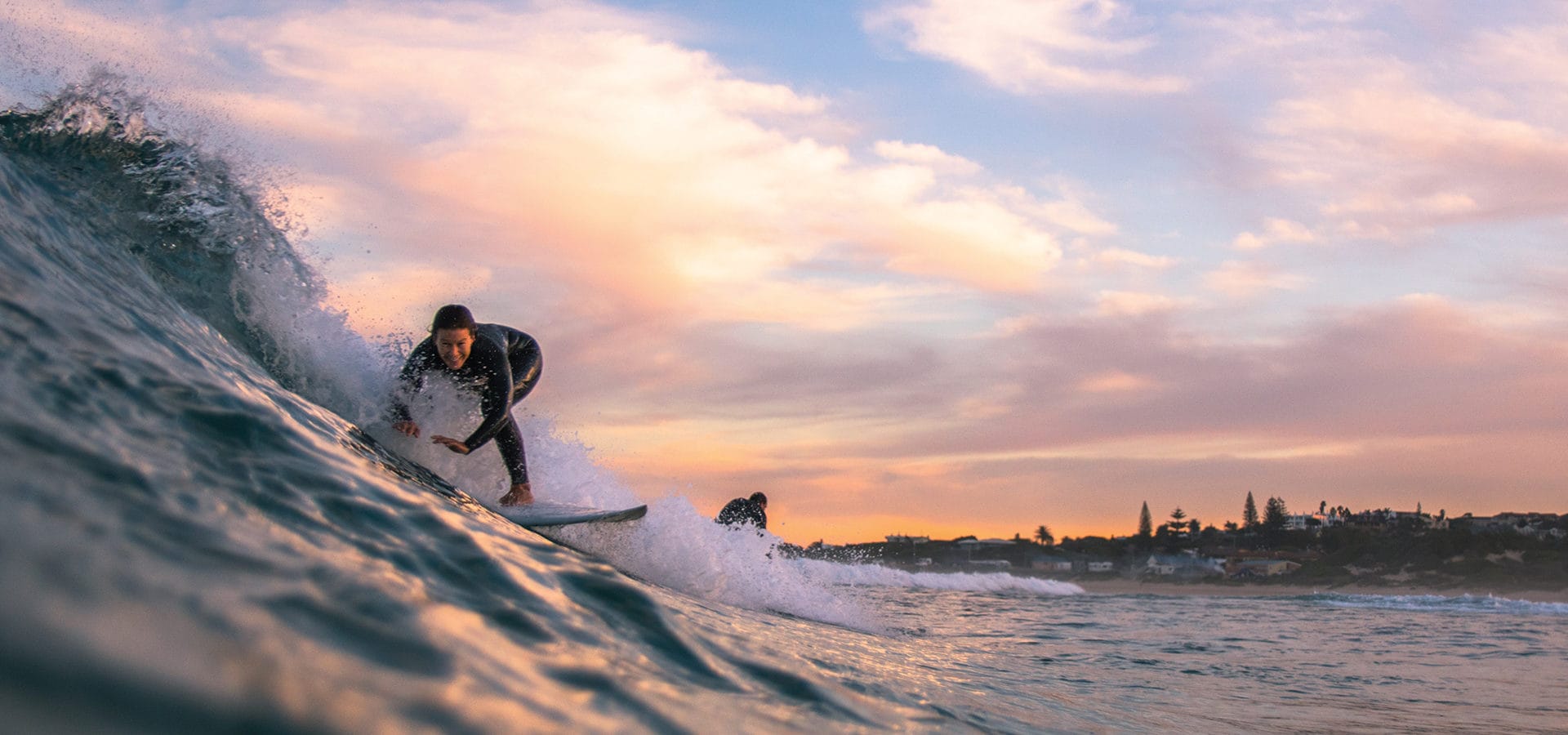
The surf therapy organization Waves for Change had received a grant with a goal: figure out a way to grow—not just your individual surf program but the sector of surf therapy itself. “So Tim Conibear [Waves for Change founder] along with Matt Mattila and some other key players sent eight organizations from around the globe to Cape Town,” Kris says.
What began as a group of kindred strangers quickly evolved into a group of friends and colleagues who together launched the International Surf Therapy Organization (ISTO). “That was in October 2017,” Kris notes. “In July 2018 we all met in Jeffreys Bay, South Africa, for our second conference.”
At that point the number of organizations affiliated with ISTO had doubled. And while each organization shared a common goal, the founders were primarily focused on their own programs. ISTO needed someone at the helm, and Kris was nominated to take on the challenge.
“One year after we launched, I was appointed CEO of ISTO. It was thrilling, exciting and intimidating all at once,” Kris says. What began as eight surf therapy programs coming together with a shared vision has evolved into a collaboration of nearly 70 organizations worldwide.
“By harnessing the power of partnership, we know we can move mountains,” says Kris. “We are expanding surf therapy awareness worldwide by increasing understanding, [as well as] developing and sharing best practices.”
With a large emphasis on research and data collection, ISTO has become a trusted resource for the surf therapy community. “Evidence and exposure bring validation,” Kris says. “Our vision is to create a world where health care professionals are prescribing evidence-based surf therapy worldwide. We can’t do that without data.”
Through the efforts of ISTO, surf therapy was featured at both the Society for Mental Health Research conference in Noosa, Australia, as well as the Society for Community Research and Action conference in Chicago. “I had the great honor of speaking at both conferences, and now ISTO and our guest editors are producing a special issue in the Global Journal of Community Psychology Practice dedicated solely to surf therapy. ISTO was also just named one of the SHIFT Award Official Selections. All of these firsts continue to validate our efforts to bring together a level of collaboration and medical legitimacy that hasn’t been seen before in surf therapy.”
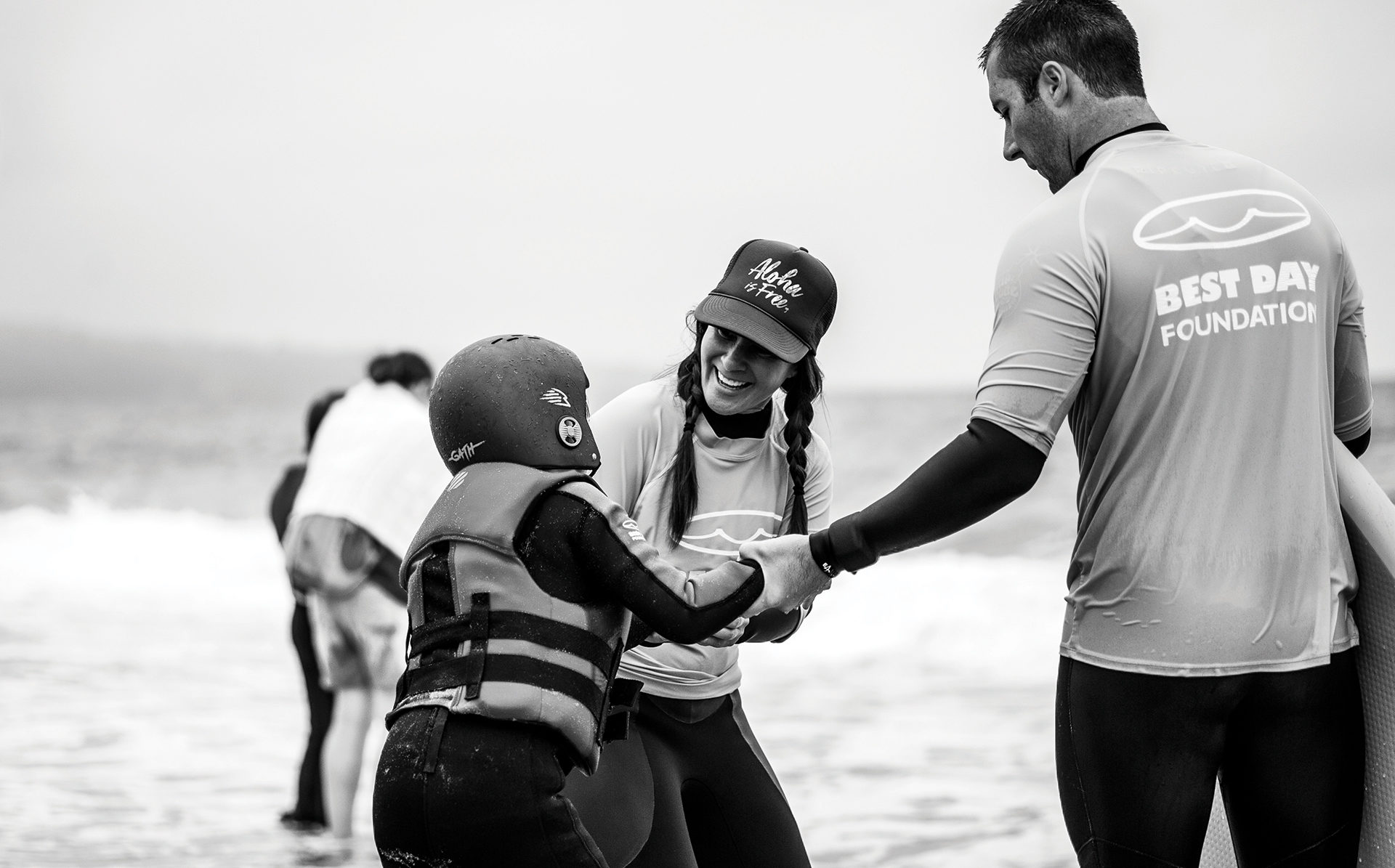
Around the globe there are nonprofits exposing surf therapy to underserved populations. Right here in Southern California there are programs designed to work with veterans, at-risk youth and people coping with mental and physical illness. “Surf therapy reduces the stigma of seeking help,” Kris says. “I think people are looking for an alternative to traditional therapy. We’ve replaced the couch with a surfboard.”
By combining the adventure element of surfing with the healing power of the ocean, surf therapy works to positively impact the mental and physical well-being of individual participants. “We are defining surf therapy as the evidence-based, clinically guided and structured use of surfing as a therapeutic vehicle in the prevention and treatment of social, behavioral, health, economic and other global challenges,” Kris says.
She describes the experience: “When you’re surfing, you’re not thinking about what’s waiting for you on land. That presence, that ability to be in the zone, to be able to just connect to yourself, it changes the way you see the world and it changes how you relate to others. The ocean humbles you. You’re immersed in something so much bigger than yourself.”
In addition to promoting self-efficacy, solace and a sense of community, surf therapy works to create an appreciation for our ocean environments. “There’s an innate response to protect the ocean because we’re benefiting from it,” Kris explains. “We take care of what we love. I pick up trash every single day walking on the beach. I’ve paddled out to pop a balloon and stick it in my wetsuit.”
ISTO is hosting the first-ever Surf Therapy Symposium here in South Bay on November 8–10. “We strategically planned our first symposium in Southern California and chose the South Bay for its rich surf history and culture.” Kris notes.
The ISTO mantra is “Go far, go together.” Kris explains, “It’s part of an African proverb. The entire proverb is ‘Go fast, go alone. Go far, go together.’” By uniting surf therapy experts, researchers, government counterparts, health care practitioners, scholars, authors, students, professional surfers and industry leaders, the ISTO Symposium puts “Go far, go together” into practice.
Watching Kris teach a young boy to surf in the ocean, it’s clear she’s found her calling. Her energy is contagious as she guides him through the water, and for a moment his mind is focused on nothing but the waves. Everyone around him cheers as he stands on his board and rides it to the sand.
“Never give up on your dreams,” Kris says. “And never, ever think that in your 30s or 40s [you’re] done—because I didn’t even start surfing until I was 41. I didn’t even know that this was my dream.”
